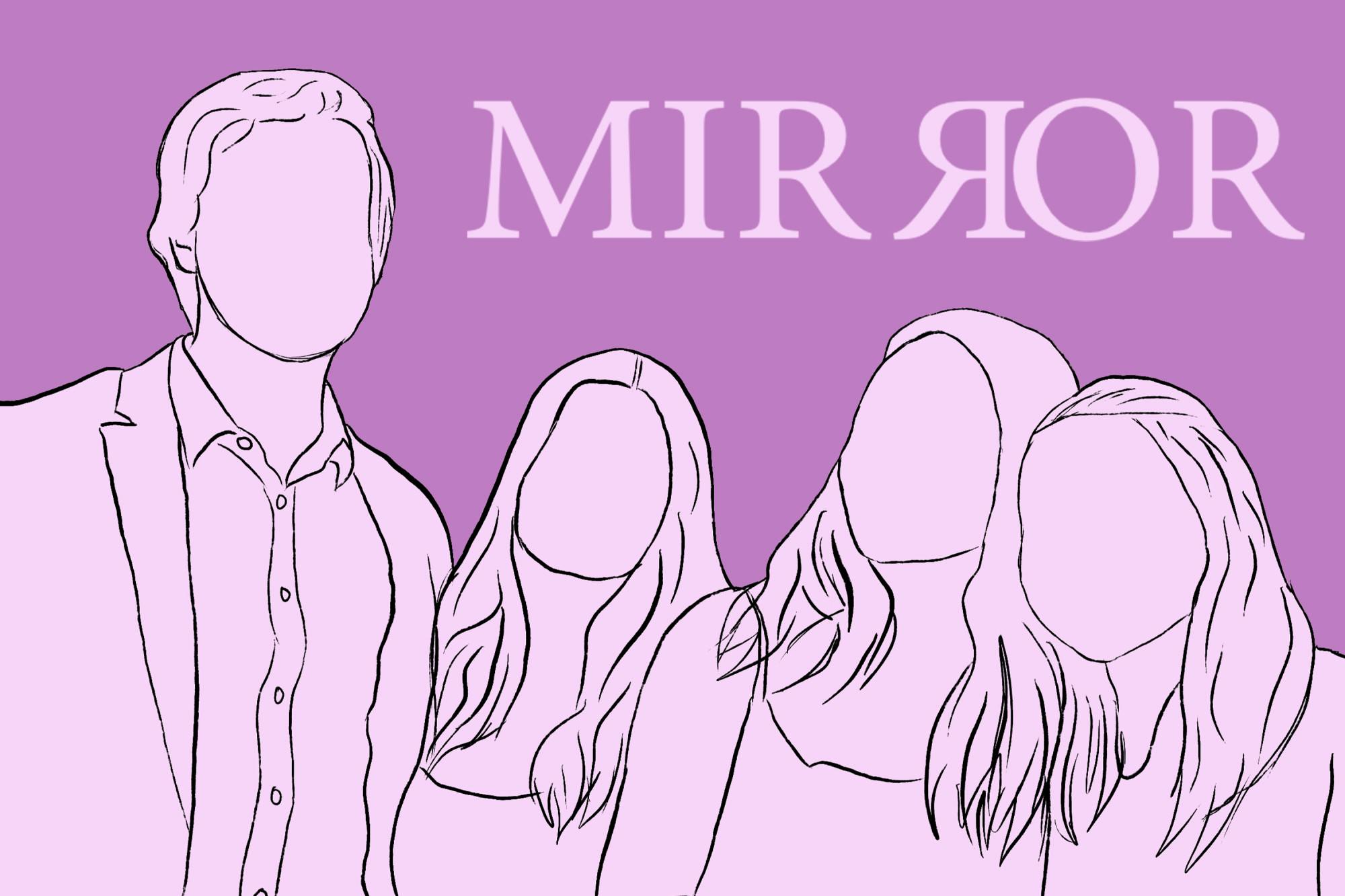Here it is, everyone! Our final Editors’ Note of the year and of the 180th Directorate.
Omala, here.
I’ve always found that reaching the end is a bizarre feeling. I have struggled my whole life with nostalgic depression and knowing that there are feelings and places that I will never be able to emulate tangibly again. The feeling of bittersweetness has always lingered in my bones and heart longer than I expected. This feeling of being stuck in a liminality where you can’t stop thinking about the past. Relief that the end is in sight and that my world is about to change. Fear of the unknown and of never seeing the people I’ve spent the last four years getting to share life with again. But also wonder and excitement for the foreign land that is my future and for a fresh start away from the comfort of the eyes that have watched me the last few years. Change has always excited me.
Writing and editing for Mirror has been a pivotal part of my life in the woods. I joined The Dartmouth my freshman winter on Zoom after struggling to feel like I was part of anything my freshman fall. It was during a period of my life that was filled with immense loneliness, heartbreak and anxiety. I couldn’t have predicted then how much this experience would transform the trajectory of my college life and fill it with people and words that would make me feel complete again. Mirror has given my Dartmouth experience purpose, and writing these notes biweekly for the last year has given me the words to express that. I am grateful for the countless late nights of laughter in Robo, full of discussion and debate about pieces that span parts of campus I might never have known anything about. I’m proud that our editors’ notes over the last year, alongside articles we pitched, will remain amongst past issues of The D that date back hundreds of years. I’m glad to have been a part of this paper and to have my name dotted amongst the history of it.
Street, here.
Last week, I strolled past the Green with a professor after a satisfying Pine lunch on the College’s dime. During our previous hour and a half together, we discussed his journey to Hanover, the jarring distraction of unexpected text messages and the tribulations of the Dartmouth printing system. But something still lingered, swirling in murk in my head. To me, this professor encapsulated the idea of full commitment to everything done in life. Among various interests, those academic and those far from the classroom, he flourished in each. It baffled me.
Often, I feel a propensity to want fling myself into each endeavor that crosses my path — that one summer I joined a dance group, that term I built a anti-vaping device, my senior poetry workshop, that hiking trip, that fashion show, that friend’s Shakespeare formal, those nights in The Dartmouth production room — yet it often causes nauseating whiplash and discards me, leaving me floundering in disappointment. I now addictingly rely on meditation to be more present, no matter the tasks that swirl in the background of my desktop life. I’m not always successful in implementing it. So, I feel caught in limbo, attempting to gather as wide a net as possible while also diving as deeplying as I can into each one. I often fail. But I feel that if I’m not exploring all of these interests, which all feel a part of who I am, am I really being myself? I didn’t know how to balance it.
So, I asked him.
He paused, then stopped to turn towards me.
“You know, Street,” he said. “You think by committing yourself to a single path, you’ll lose all of those other parts that feel as much a part of you.”
I nodded. And waited.
“But, all in that one thing you do, your entire self is still there. All of those other little, other paths you’ve explored, they all contribute to what you do in that seemingly singular path. It’s still fully you.”
I once watched a TED talk entitled “Why Some of Us Don’t Have One True Calling” by Emilie Wapnick. In it, she spoke of a “Multipotentialite,” someone who switches between many interests, each one as fulfilling as the last. When I heard it, I partially understood it. But when he said, “It’s still fully you,” that murky swirl partially cleared.
That name printed on all of those editor’s notes written months prior is fully me, as much as the name on the code that estimates a fixed-effects model. Everything I’ve done with The Dartmouth has been me, and I echo Omala in that having that name as part of the long history of The D is an honor. Even into my life after Hanover, knowing that myself — my full, flawed self — remains a part of something that has lasted many lifetimes longer than my own will fulfill me. I thank everyone that has worked with me, those friends that spent many a long night on the second floor of Robinson hall with me. It’s been a fun ride.
Omala and Street, here.
This week at Mirror, our writers delve into a plethora of topics that cover timely issues. One writer highlights the issue of textbook accessibility, while another investigates student podcasts and radio shows. One writer explores Hanover laws and how they affect students’ daily lives, while another delves into caffeine culture. Finally, one writer interviews a Dartmouth Dining Services’ nutritionist for National Eating Disorder Awareness Week.




